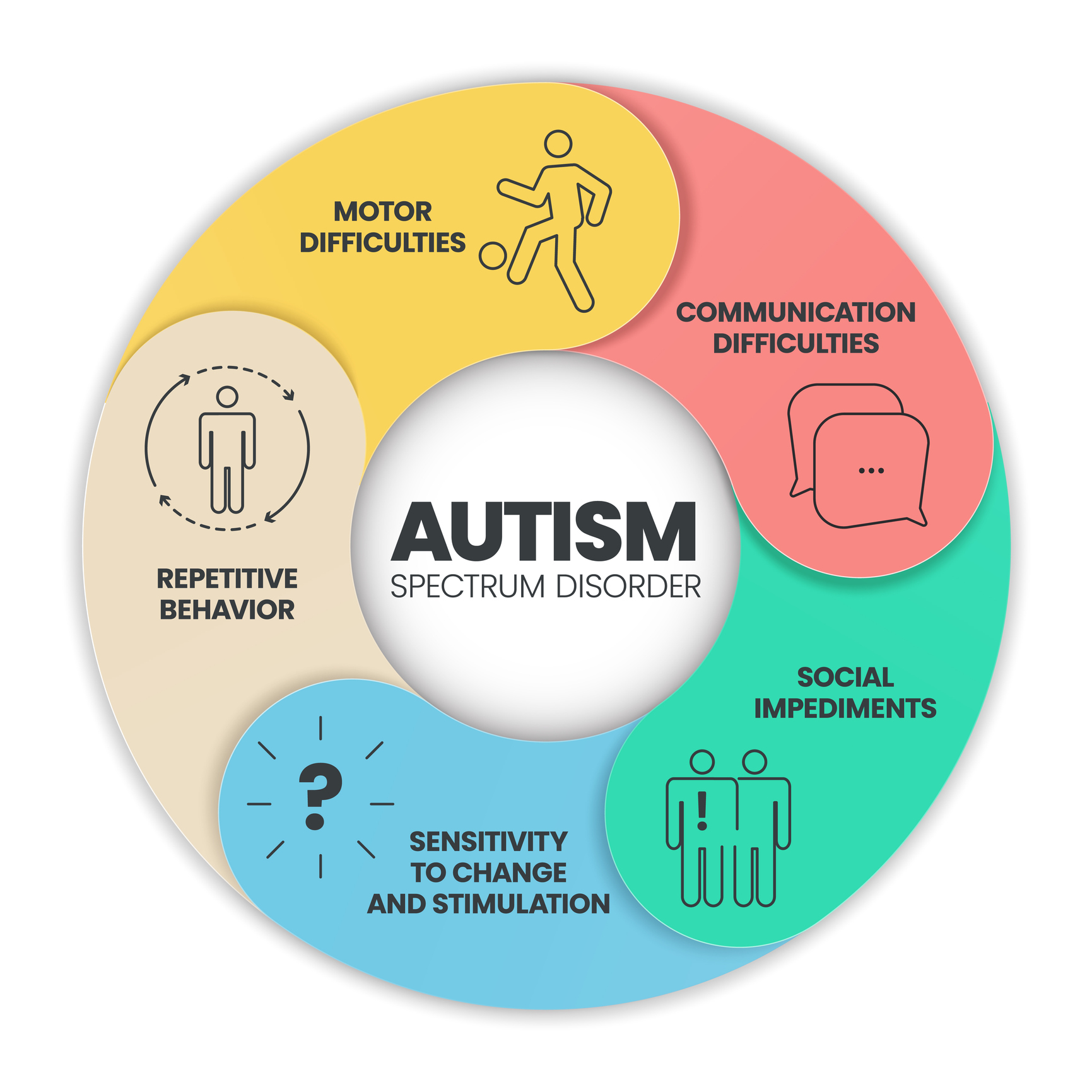Adult Autism Diagnosis: Challenges, Support, And Life Transformation

Table of Contents
Challenges in Obtaining an Adult Autism Diagnosis
The process of obtaining an adult autism diagnosis can present numerous hurdles. These challenges often stem from a lack of awareness, limited resources, and the inherent complexities of diagnosing autism in adulthood.
Diagnostic Barriers
- Difficulty accessing timely and affordable assessments: Finding qualified professionals specializing in adult autism assessment can be difficult. Long waitlists and high costs associated with private assessments create significant barriers for many. Insurance coverage for autism assessments also varies widely.
- Lack of awareness among healthcare professionals regarding autism in adults: Many healthcare providers lack sufficient training in recognizing autism in adults, leading to misdiagnosis or delayed diagnosis. This lack of understanding can significantly impact the individual's journey towards receiving an appropriate diagnosis.
- Misdiagnosis with other conditions (e.g., anxiety, depression): Autism often co-occurs with other conditions, leading to potential misdiagnosis. Symptoms of autism, such as social anxiety and difficulty regulating emotions, can be mistaken for symptoms of anxiety or depression. A comprehensive assessment is crucial to differentiate between these conditions.
- Lengthy waiting lists for specialist appointments: The demand for autism assessments often exceeds the availability of qualified professionals, resulting in lengthy waiting times. This delay can cause significant stress and uncertainty for individuals seeking a diagnosis.
- Subjectivity in diagnostic criteria, leading to inconsistencies: The diagnostic criteria for autism spectrum disorder (ASD) can be subjective, leading to inconsistencies in diagnoses across different professionals. This can lead to frustration and uncertainty for individuals seeking a clear and consistent assessment.
- Cost of private assessments: The cost of private assessments can be prohibitive for many individuals, particularly those without adequate insurance coverage. This financial barrier can significantly delay or prevent individuals from obtaining a diagnosis.
Emotional and Psychological Impacts of the Diagnostic Process
The diagnostic process itself can be emotionally and psychologically challenging.
- Uncertainty and anxiety surrounding the diagnosis: The uncertainty of waiting for a diagnosis can create significant anxiety and stress. Individuals may experience a period of limbo, unsure of their identity and future.
- Potential for feelings of isolation and stigma: The stigma associated with autism can lead to feelings of isolation and shame. Individuals may hesitate to disclose their concerns about a potential diagnosis to family and friends.
- Impact on self-esteem and confidence: The process can impact self-esteem and confidence. Individuals may question their abilities and worthiness.
- Processing of past experiences through an autistic lens: Receiving a diagnosis can lead to a re-evaluation of past experiences. This process can be both insightful and emotionally demanding.
- Managing expectations about the diagnosis and its implications: It's important to manage expectations surrounding the diagnosis. An adult autism diagnosis doesn't define a person's entire life, but rather offers a framework for understanding oneself and developing effective coping strategies.
Seeking Support After an Adult Autism Diagnosis
Receiving an adult autism diagnosis is just the beginning of a journey towards self-understanding and growth. Seeking support is crucial in navigating the challenges and embracing the opportunities that come with this diagnosis.
Finding the Right Professionals
Building a strong support network is essential.
- Neuropsychologists specializing in autism spectrum disorder (ASD): Neuropsychologists can provide comprehensive assessments and support.
- Psychiatrists with experience in autism: Psychiatrists can help manage co-occurring mental health conditions.
- Therapists specializing in autism and related challenges: Therapists can provide support in developing coping mechanisms and addressing emotional challenges.
- Occupational therapists to aid in developing coping mechanisms: Occupational therapists can help develop strategies for managing sensory sensitivities and daily life challenges.
- Support groups offering peer-to-peer connections: Connecting with others who share similar experiences can provide valuable support and understanding.
Utilizing Available Resources
Various resources are available to support autistic adults.
- Online support networks and communities: Online communities provide a platform for connecting with others and sharing experiences.
- Local autism organizations and charities: Local organizations often provide a range of services, including support groups and resources.
- Government-funded services and programs: Government-funded services may offer financial assistance or access to healthcare.
- Advocacy groups for autistic adults: Advocacy groups work to improve access to services and support for autistic adults.
- Educational resources on autism for adults and family members: Educational resources can provide valuable information about autism and its impact.
Developing Strategies for Self-Advocacy
Self-advocacy is crucial for navigating the healthcare and social systems.
- Learning to communicate effectively about your needs and challenges: Clearly communicating needs helps ensure access to appropriate support.
- Understanding your rights and accessing appropriate support: Knowing your rights ensures you can access the services and support you need.
- Building confidence in navigating healthcare and social systems: Confidence in self-advocacy enables individuals to navigate systems more effectively.
- Creating a personalized support plan: A personalized plan ensures the individual receives the most appropriate support.
- Knowing when to seek additional help: Recognizing when extra support is needed is crucial for managing challenges effectively.
Life Transformation After an Adult Autism Diagnosis
An adult autism diagnosis can be transformative, leading to increased self-understanding, improved relationships, and access to appropriate support.
Increased Self-Understanding and Acceptance
A diagnosis often provides clarity and understanding.
- Explaining previously confusing behaviors and experiences: A diagnosis can offer explanations for past struggles and behaviors.
- Developing self-compassion and self-acceptance: Understanding autism can foster self-compassion and acceptance.
- Gaining a better understanding of your strengths and challenges: Individuals can leverage their strengths and develop strategies to manage challenges.
- Building a stronger sense of self-identity: A diagnosis can contribute to a stronger sense of self and identity.
- Improved mental health through self-knowledge: Self-knowledge contributes to improved mental health and well-being.
Improved Relationships and Communication
Improved communication and understanding are crucial for positive relationships.
- Improving communication with family, friends, and colleagues: Understanding autism allows for more effective communication.
- Developing strategies for navigating social situations: Individuals can learn to navigate social situations more effectively.
- Setting healthy boundaries in relationships: Establishing boundaries helps to protect one's well-being and energy.
- Seeking support from understanding loved ones: Support from loved ones helps individuals to cope with challenges.
- Strengthening existing relationships with increased understanding: Increased understanding can lead to stronger and healthier relationships.
Accessing Appropriate Support and Accommodations
Access to appropriate support and accommodations is essential for success.
- Implementing strategies for managing sensory sensitivities: Strategies to manage sensory sensitivities improve quality of life.
- Seeking workplace accommodations to enhance productivity and well-being: Workplace accommodations ensure productivity and well-being.
- Utilizing assistive technologies and tools: Assistive technologies can significantly improve functionality.
- Creating a supportive and understanding environment at home and work: A supportive environment is vital for well-being.
- Advocating for inclusive policies and practices: Advocacy ensures that inclusive policies and practices are implemented.
Conclusion
Receiving an adult autism diagnosis can present significant challenges, but it also opens doors to profound self-understanding, support, and life transformation. By understanding the potential hurdles in the diagnostic process, actively seeking support, and utilizing available resources, individuals can navigate this journey and embrace the positive changes an adult autism diagnosis can bring. If you suspect you may be autistic, don’t hesitate to seek professional help and begin the process of obtaining an adult autism diagnosis. Taking this step can be the catalyst for a fulfilling and meaningful life. Remember, seeking an adult autism diagnosis is a journey toward self-discovery and empowerment.

Featured Posts
-
 San Diego County Beaches This Weekend Weather Parking And More
May 30, 2025
San Diego County Beaches This Weekend Weather Parking And More
May 30, 2025 -
 Orchestral Concert Marks Undertales 10th Anniversary
May 30, 2025
Orchestral Concert Marks Undertales 10th Anniversary
May 30, 2025 -
 Dhkra Alastqlal Meany Lw Ansf Alqwmu Wttleat Almstqbl
May 30, 2025
Dhkra Alastqlal Meany Lw Ansf Alqwmu Wttleat Almstqbl
May 30, 2025 -
 Charleston Tennis Pegula Triumphs Over Collins
May 30, 2025
Charleston Tennis Pegula Triumphs Over Collins
May 30, 2025 -
 The Billboard 2025 List Top Music Lawyers To Watch
May 30, 2025
The Billboard 2025 List Top Music Lawyers To Watch
May 30, 2025
